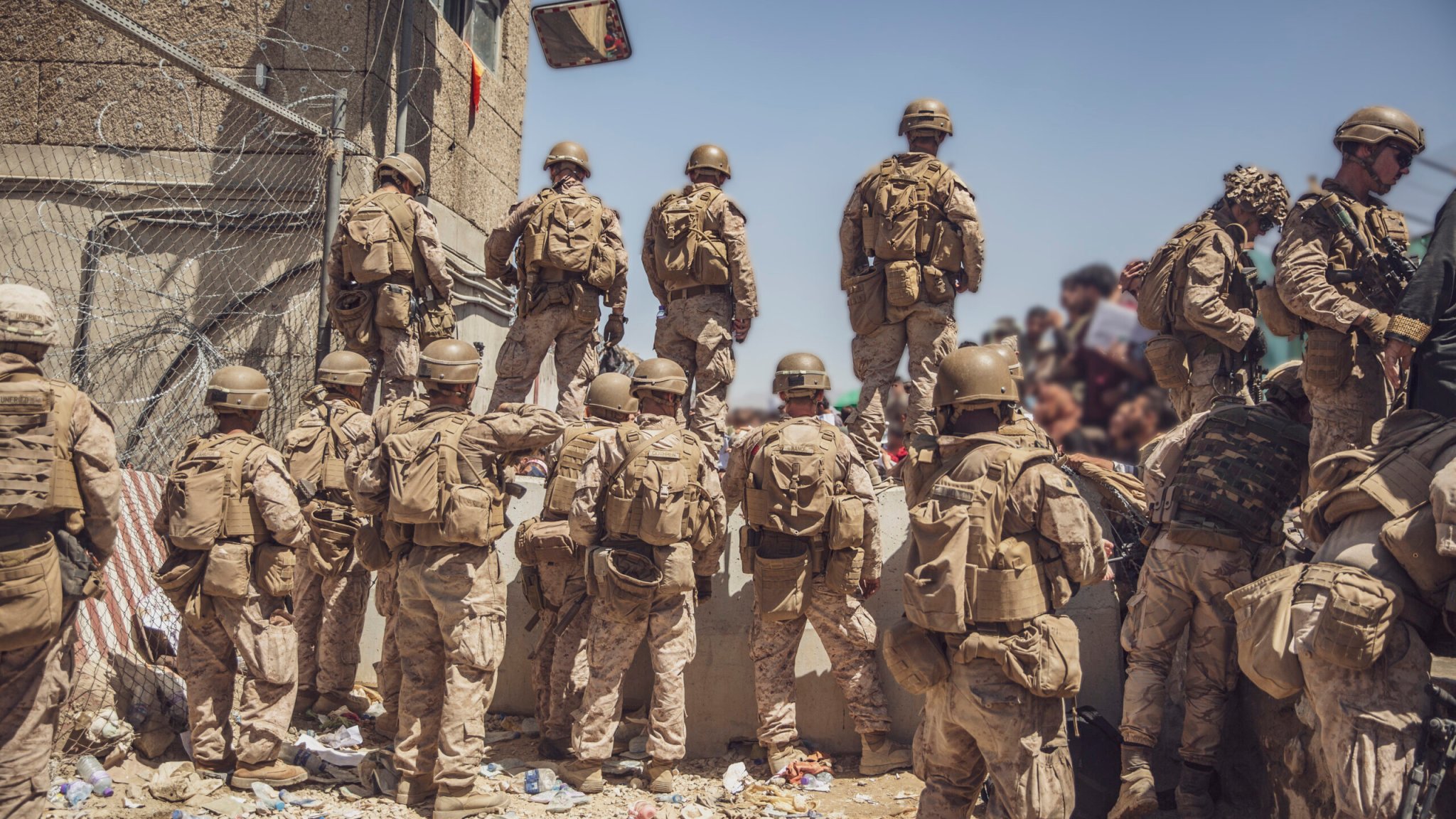

The Taliban have killed an Islamic State group leader who is responsible for the Aug. 26, 2021, bombing at Hamid Karzai International Airport’s Abbey gate that killed 13 U.S. service members and 170 Afghans, U.S. officials have said.
Known as ISIS-Khorasan, or ISIS-K, the Afghanistan branch of the terrorist group is an enemy of both the United States and the Taliban. In fact, the U.S. military has conducted drone strikes in Afghanistan to help the Taliban fight ISIS-K, now retired Marine Gen. Kenneth McKenzie Jr., head of U.S. Central Command at the time, said in December 2020.
On Tuesday, Air Force Brig. Gen. Patrick Ryder, a Pentagon spokesman, confirmed that the ISIS-K leader who planned the Abbey Gate attack had been killed earlier this month. The United States was not involved in the Taliban operation that led to the ISIS leader’s death, Ryder said in a statement.
Subscribe to Task & Purpose Today. Get the latest military news, entertainment, and gear in your inbox daily.
“Our thoughts and prayers remain with the families of our 13 service members lost at Abbey Gate, whose courageous service and sacrifice for our nation will always be remembered,” Ryder said.

The U.S. troops assigned to guard Abbey Gate during the Kabul evacuation were in a exposed position, but the head of the Army’s 82nd Airborne Division at the time decided to keep the gate open to allow British forces to complete their evacuation efforts, an investigation into the suicide attack later found.
Marine Sgt. Tyler Vargas-Andrews, who lost his right arm and left leg in the bombing, told lawmakers in March that he and his fellow Marines spotted a man who met the description of the suspected suicide bomber in the crowd of Afghans outside Abbey Gate before the attack, but they were not permitted to shoot the man.
“Plain and simple: We were ignored,” Vargas-Andrews told the House Foreign Affairs Committee. “Our expertise was disregarded. No one was held accountable for our safety.”
U.S. government officials have not publicly released the name of the ISIS-K leader whom the Taliban killed or the circumstances surrounding his death.
News of the ISIS leader’s death comes shortly after the Washington Post reported a classified Pentagon assessment that ISIS in Afghanistan is posing a growing threat to Europe and Asia, and the group wants to eventually launch attacks against the United States. Those intelligence findings were among the classified documents allegedly leaked by Airman 1st Class Jack Douglas Teixeira.
Army Gen. Michael ‘Eric’ Kurilla, head of U.S Central Command, warned lawmakers in March that the U.S. military is limited in its abilities to monitor ISIS-K and al-Qaida in Afghanistan.
“While we can see the broad contours of attack planning, we lack the granularity to see the complete threat picture,” Kurilla wrote in his written testimony to the Senate Armed Services Committee. “ISIS-Khorasan has increased attacks in the region and desires to export those attacks beyond Afghanistan to include the US homeland and our interests abroad.”
In a statement on Tuesday, National Security Council spokesman John Kirby said ISIS is under pressure within Afghanistan and elsewhere. Kirby noted that the U.S. military has killed ISIS leader Bilal al-Sudani in Somalia along with the group’s former top leader Abu Ibrahim al-Hashimi al-Qurayshi in Syria.
Kirby said that ISIS-K has lost several high-profile leaders so far this year, but did not identify who those leaders were.
“We have made clear to the Taliban that it is their responsibility to ensure that they give no safe haven to terrorists, whether al Qa’ida or ISIS-K,” Kirby said. “We have made good on the President’s pledge to establish an over-the-horizon capacity to monitor potential terrorist threats, not only from in Afghanistan but elsewhere around the world where that threat has metastasized as we have done in Somalia and Syria.”
But Bill Roggio, a senior fellow with the Foundation for Defense of Democracies think tank in Washington, D.C., warned that the Taliban, which still maintains its alliance with al-Qaida, cannot be trusted to keep ISIS-K in check.
“The administration is relying on terrorists – that would be the Taliban – to fight terrorists, and it’s a major mistake,” Roggio told Task & Purpose.
The latest on Task & Purpose
- New details emerge about Col. Chung, the suspended commander of 5th SFAB
- Navy SEAL doctor astronaut Jonny Kim somehow finds time to become naval aviator
- Russia’s Spetsnaz forces are being annihilated in Ukraine, leaks claim
- 75th Ranger Regiment team wins Best Ranger Competition for third year in a row
- Wagner Group leader calls for end to Russia’s ‘special military operation’
